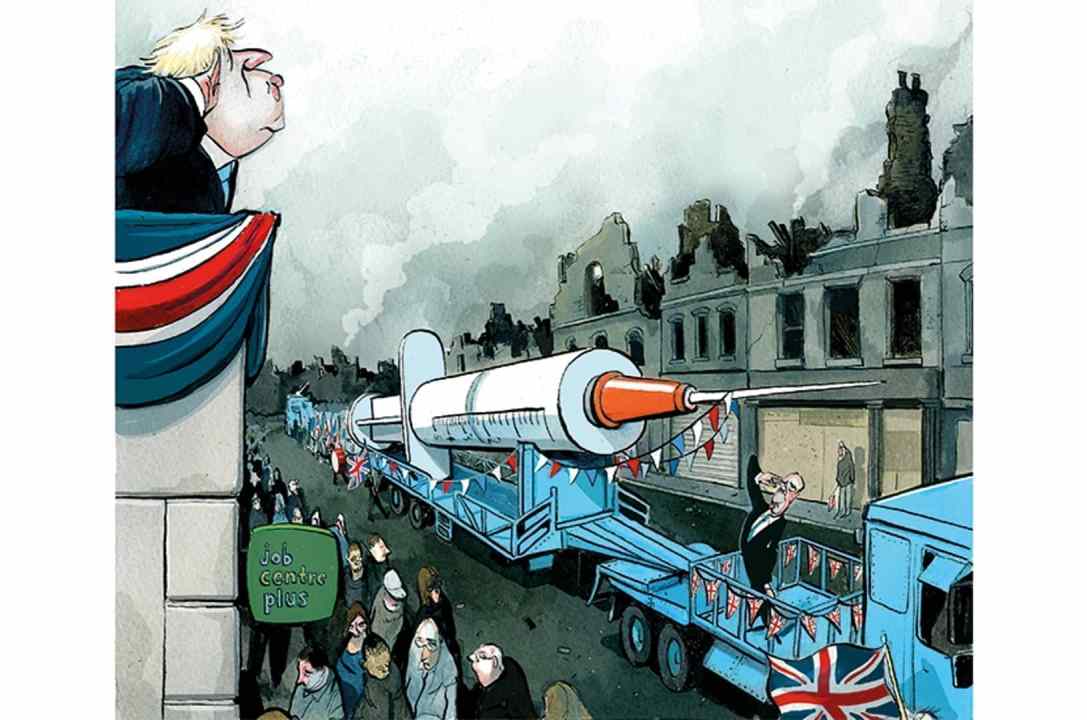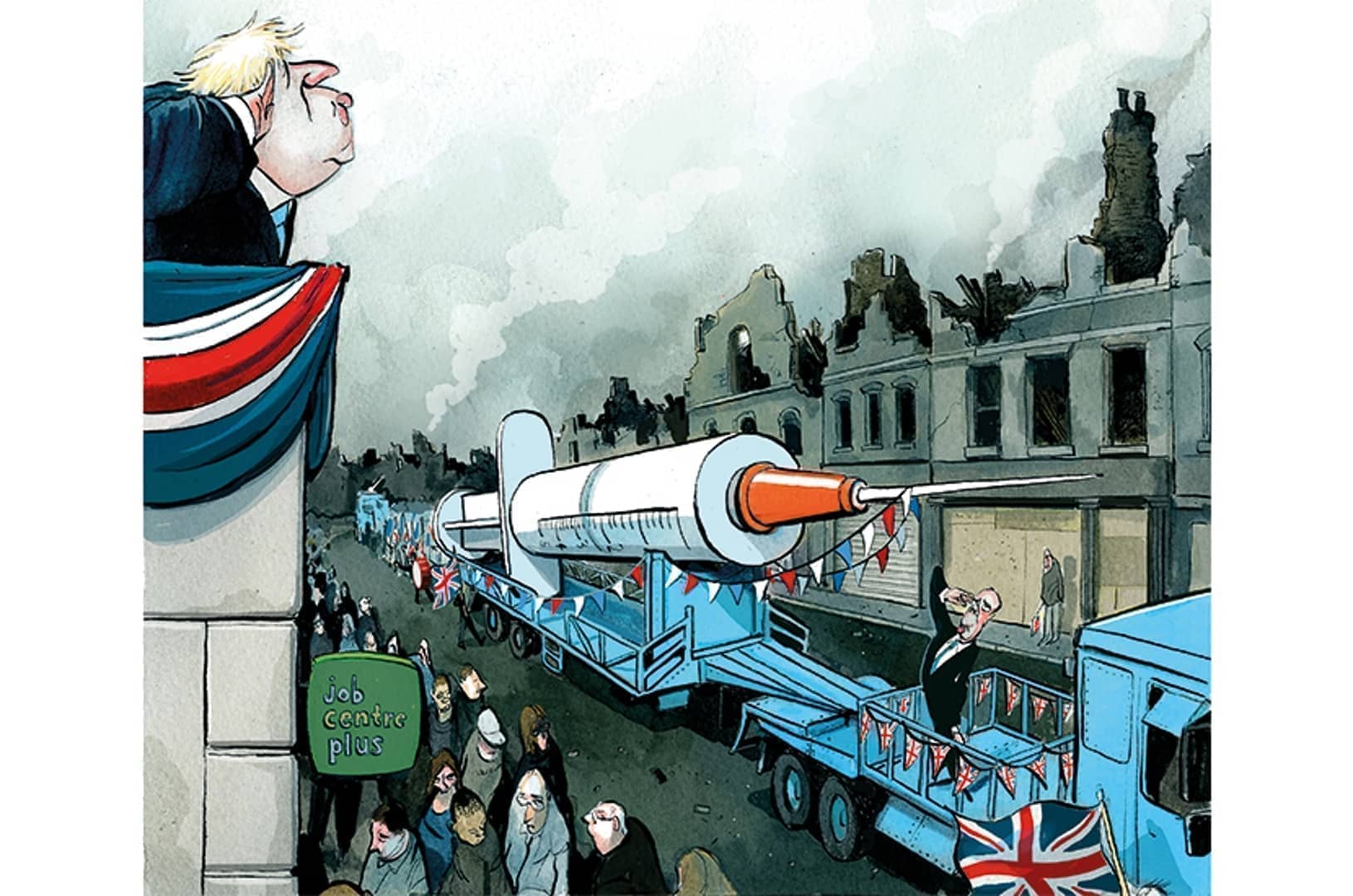Boris Johnson certainly managed to rally the troops on their first day back from recess this afternoon as he told the Commons that all remaining domestic Covid restrictions were coming to an end.
The most explosive moments of the past few months haven’t been about the continuation of Covid restrictions
From this Thursday, the legal requirement to self-isolate following a positive test will come to an end. Until 1 April, people who test positive will be advised to stay at home, but after that ‘we will encourage people with Covid-19 symptoms to exercise personal responsibility, just as we encourage people who may have flu to be considerate to others’. On the same date, free symptomatic and asymptomatic testing will come to an end too, with the Prime Minister citing the ‘vast cost’ of the testing programme as a reason for this.
The feral mood on the Tory benches grew as Keir Starmer responded to the Prime Minister. The Labour leader complained that the government was ‘taking away the tools that will help’ the public be responsible, adding: ‘Free tests can’t continue forever, but if you’re 2-1 up with 10 minutes to go, you don’t sub off one of your best defenders.’ Conservative MPs laughed theatrically as Starmer said his party did not want to see restrictions in place ‘a moment longer than necessary’. They cheered even more during Johnson’s response to this, as the Prime Minister ridiculed Starmer for having a ‘ferocious grip of the wrong end of the stick’. Labour, Johnson said, had been ‘consistently wrong on all the big calls’.
He will have been encouraged by the responses from the Conservative backbenches, with David Davis — who recently told the Prime Minister ‘in the name of God, go’ — and Graham Brady praising the end of restrictions. Covid Recovery Group chair Mark Harper joked that today’s statement was the Prime Minister’s application to join his pressure group. Others asked him to promise that there would be no lockdowns in the next pandemic, and former Health Secretary Jeremy Hunt tried to pin him down that there still weren’t enough doctors and nurses, and that the ability of the NHS to deal with future pandemics was dependent on a proper workforce plan. Johnson merely insisted that the government had a ‘vast plan’ for recruitment.
So in a purely political sense, today’s statement was a success. The Conservative party was in a visibly good mood about one of the things that has been causing constant irritation over the past few months: the suspicion among backbenchers that this government was being captured by the ‘Covid state’. But it’s still worth pointing out that the most explosive moments of the past few months haven’t been about the continuation of Covid restrictions: they’ve been about the way figures in Downing Street ignored those restrictions, and about the Prime Minister’s personal judgement in handling the scandals over parties and Owen Paterson. Today’s statement won’t have made any difference to the outcome of the police investigation into those lockdown parties.
But in a policy sense, does it make sense to decide to end restrictions and testing in this way? Starmer demanded the evidence for removing the requirement to self-isolate, including the impact on the clinically extremely vulnerable. Others complained about the cost of testing from April for those visiting the clinically extremely vulnerable. And, in a nod to the row earlier which held up the Cabinet meeting signing off the plan for living with Covid, Johnson said that testing of healthcare workers would now be a matter for the NHS. The row had been caused by Health Secretary Sajid Javid demanding more money to cover the cost of this testing, and Chancellor Rishi Sunak refusing, saying it should come out of the Department of Health’s existing budget. We will hear from the chief scientific adviser and the chief medical officer on the evidence behind today’s decisions later when they join a press conference with Johnson.








Comments